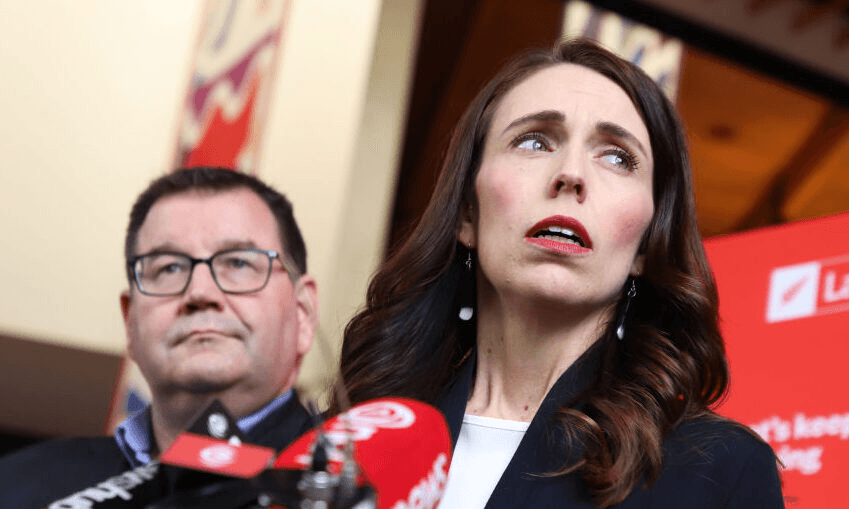Not everything Labour plans to do over the next three years was announced during the campaign. Two promises that didn’t get any public announcement: reopening the door to refugees and a review of how political parties can raise money.
Labour just won its most resounding victory in a half-century with a manifesto offering little of the transformational change once championed by Jacinda Ardern, but there are still a few surprises in the party’s programme.
The party’s manifesto is, at best, an incomplete roadmap. There are some significant omissions from the document. The term “Kiwibuild” doesn’t appear in its 29 pages and there’s no target for how many homes Labour plans to build. The party’s promise is instead distilled to “keep making progress on housing”.
That doesn’t mean Kiwibuild is dead, as suggested by Act in a press release after the manifesto’s release. Kiwibuild isn’t dead and the manifesto isn’t “exclusive”, according to an official in the prime minister’s office, but it does show the party’s planned direction for the next three years.
Most of what’s in the manifesto was announced during an election campaign that went much longer than expected. However, one of the unexpected promises in the manifesto is to open up New Zealand’s border facilities to a group that has so far been largely overlooked during the response to Covid-19: refugees.
Entry for refugees
The promise to allow refugees into the country through managed-isolation and quarantine facilities went unmentioned on the campaign trail. The government also didn’t announce last week that it went forward with the promise, before the new Labour government is sworn in, and reopened the border to the first refugees since Covid struck. An unspecified number of refugees have entered the country in recent days and are now working their way through the 14-day isolation system.
New Zealand was supposed to welcome about 1,500 refugees this year, but the swift closure of borders in March has rendered the promise impossible.
Questions from The Spinoff to immigration minister Kris Faafoi’s office about the manifesto promise and the subsequent opening of the border have gone unanswered.
Rachel O’Connor, who coordinates refugee work for the New Zealand Red Cross, said she’d learned about the first refugees coming in “only very recently”.
Getting refugees into New Zealand is difficult work during normal times, requiring coordinating health screenings and visa requirements. It can involve years of work. The average wait time in a refugee camp is 18 years before coming to New Zealand.
“Even if New Zealand is ready, it doesn’t mean the organisations overseas are ready,” said O’Connor. Finding flights during Covid-19 is especially challenging, but the country is in a good position with managed isolation working at the border.
Once refugees clear the border, a newly refurbished resettlement centre in Mangere, built to help 800 refugees annually, will be put to work.
The move to welcome refugees again in a tumultuous world, made only more so by Covid-19, will save lives, according to O’Connor. Newshub Nation reported earlier this year that about 1,000 refugees headed to New Zealand became stuck overseas when the border closed. Hundreds of them were left strewn in camps across Asia, Africa and Central America.
Election finance reform
In an election campaign where the Serious Fraud Office laid charges against two men connected to the NZ First Foundation, Labour has pledged to revamp the integrity of the country’s electoral system. Among the ways it’s promised to do that is to ensure voters have access to the polls and a review of election financing rules.
According to Andrew Geddis, a law professor at the University of Otago, that last promise is overdue. New Zealand needs new campaign finance rules after three of the parties in the last Parliament faced investigation from the SFO (four if you count former National renegade Jami-Lee Ross).
“What I think we need to work out is whether there’s a problem with the underlying rules or if there’s a problem with the people following the rules and the enforcement of those rules,” he said.
New Zealand’s election finance rules can be opaque. Donations of up to $1,500 can be anonymous, while the public doesn’t need to know who gives a party up to $15,000. There’s also nothing in New Zealand’s laws to stop an individual from pumping millions of their own dollars into their own parties. Globally, that’s a little unusual.
“The idea is that anyone should be free to give money if they want. It’s your cash and your choice, as long as the public is aware of it. However, it’s not clear the public knows who is giving money,” said Geddis.
“There’s also the soft influence that rich people have in the system, that if they give a lot of money, politicians will feel good towards them,” he added.
While the promised review wasn’t announced on the campaign trail, justice minister Andrew Little said he was committed to a comprehensive review of the country’s electoral laws several times over the last term.
“The Labour Party has committed to a full review of the electoral act, which will include a review of electoral financing rules,” he said in a statement. “Any detail on the nature of the review would be a matter for the incoming minister, but I expect the review would be given due priority”.

